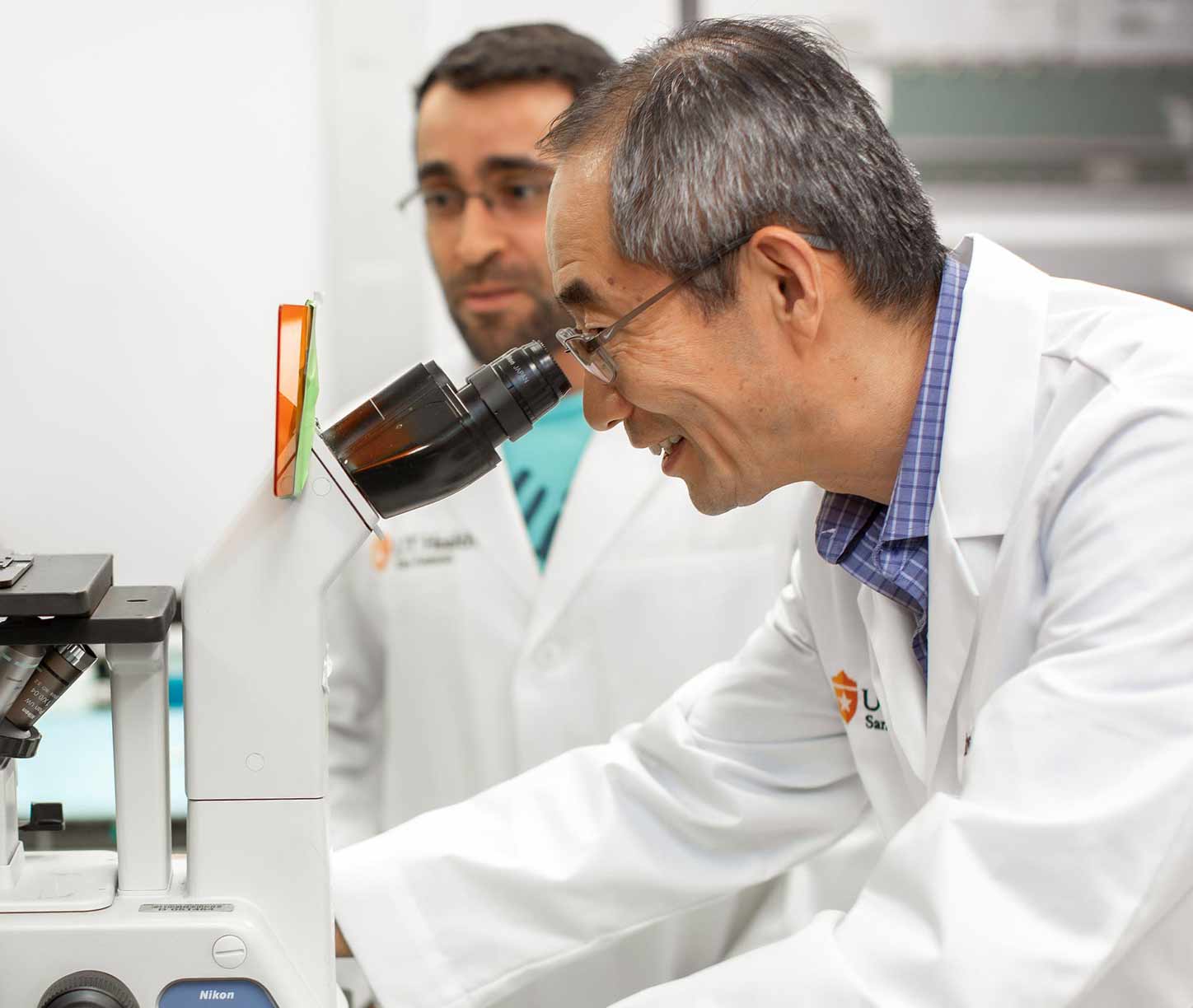Hemophilia and Bleeding Disorders

Why choose us for hemophilia and bleeding disorder care?
We are the only comprehensive bleeding disorder program in South Texas recognized by the National Hemophilia Foundation. This prestigious recognition means we maintain high standards in diagnosing, treating and supporting people with hemophilia.
Our team includes pediatric and adult blood disorder experts who have additional training through fellowships. Our expertise also includes rare bleeding disorders.
We work alongside other specialists, including dentists, orthopedists and surgeons, to protect you from complications. These extra steps help you stay safe while receiving dental work, treatments for joint damage or surgery.
Our blood disorder experts are part of the South Texas Comprehensive Hemophilia Treatment Center. This program provides family-focused services to children and adults with hemophilia and other blood disorders.
What you need to know about hemophilia and bleeding disorders
- When people bleed, proteins in the blood trigger cells to form a gel (clot) that stops it. With hemophilia and other bleeding disorders, the blood fails to clot. These lifelong conditions require specialized care from a program such as ours.
- You may experience frequent bleeding episodes that cause you to lose a lot of blood. Small cuts may need immediate medical attention. A hit to the head can sometimes lead to dangerous internal bleeding.
- Many bleeding disorders are genetic, meaning they are passed down in families. These genes sometimes “skip” a generation. That means parents who do not have bleeding disorders may still pass them on to their children.
- You receive inpatient services at University Hospital. You’ll see a hematologist oncologist (a specialist in all types of blood disorders) for clinic-based (outpatient) services at Mays Cancer Center. Coming to the cancer center and seeing a hematologist oncologist for a blood disorder does not mean you have cancer.
How to talk to your doctor about hemophilia and bleeding disorders
It’s natural to have questions when you receive a bleeding disorder diagnosis. We are here for you with information to help you move forward with confidence.
Feel free to ask us about:
- Ways to avoid bleeding, which may involve avoiding certain pain medications
- Treatment options, including medications that may prevent uncontrolled bleeding
- When and where to seek medical care, including emergency treatment for bleeding that won’t quit
- Support from social workers who help patients and families navigate common challenges, such as feelings of anxiety or depression
We’ll provide easy-to-understand explanations of how treatments work and ways to avoid complications. You are welcome to bring loved ones with you to your appointments. They can help you keep track of important details or ask questions you might not have thought of.


 Close
Close